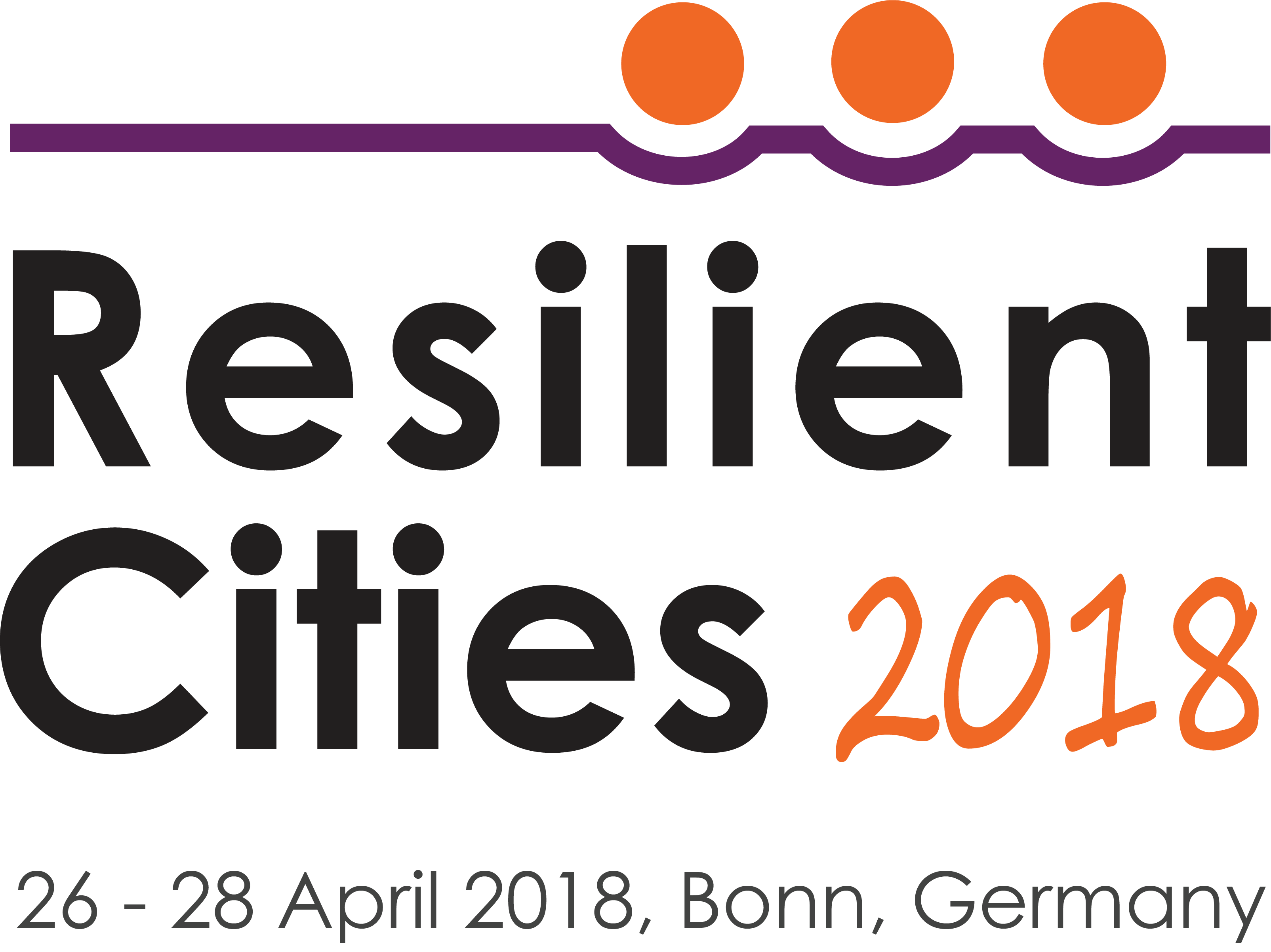Social Cohesion
Achieving social cohesive and inclusive societies
Sessions of special interest for this discussion:
A4 – “Towards realising just cities“ hosted by Mistra Urban Futures
B4 – “Achieving social cohesion through inclusive resilience-building“ – Presentation Session
C2 – “Inclusive and participatory disaster risk management in cities“ hosted by Resilient Regions Association
Managing large, dense, and diverse populations is inherently difficult, and more so in the face of rising seas, increasingly frequent disasters, resource shortages and mass population movements. The ability to rise to these challenges depends a great deal on each city’s level of resilience. The discusion will explore how cities, facing rapid social change, are managing social tensions resulting from political and civil unrest. Local governments’ efforts to build socially cohesive communities, promoting inclusion and creating a sense of trust and belonging for forced migrants and displaced populations will also be in focus.
Towards realising Just Cities
Presenting the latest research and knowledge concerning the implementation of the Urban SDG, contributing to a transition towards inclusive, safe, resilient and sustainable cities – with the New Urban Agenda’s ‘Leave no one behind’ as a motto for fairness and justice.
Based on experiences in a number of primarily intermediate cities in several continents, the session opens up for comments and discussion regarding cities’ and local governments’ participation in and commitment to the ongoing development. Particular attention will be paid to urban public finance for implementation of SDGs and the New Urban Agenda.
Participatory Disaster Risk Management in Cities
Traditionally disasters and shocks of different kinds are handled by the emergency services. When the most severe threat is taken care of, it is up to the community to deal with the aftermath. The resilience to threats of tomorrow is increasingly going to depend on the resilience of the local communities.
When different crises and shocks occur, citizens and self-organized groups gather. Via social media and other tools, allowing for fast sharing of information, the first respondents are often ”the general public” first at the scene. The self-organized citizens usually take on the tasks related to the consequences of the impacts e.g. organizing accommodation for displaced people, helping out with logistics etc.. Self-organized and volunteers generate great possibilities but also challenges for the crisis management team. How can we better, in a more structured way use the willingness and preparedness among citizens? How can we better identify, and use these volunteers and organized and non-organized responders to build a better and more resilient community?
